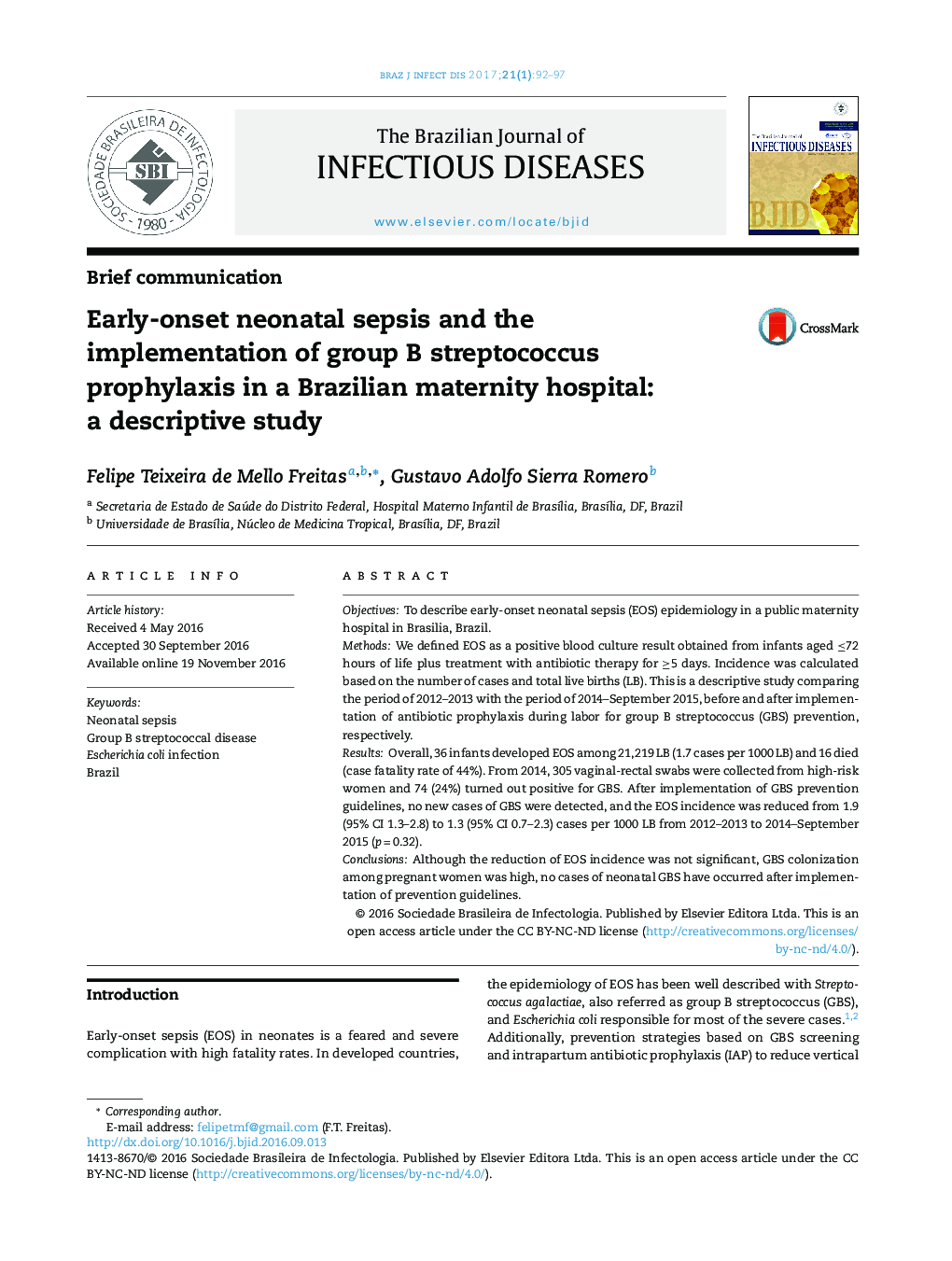| Article ID | Journal | Published Year | Pages | File Type |
|---|---|---|---|---|
| 5665580 | The Brazilian Journal of Infectious Diseases | 2017 | 6 Pages |
ObjectivesTo describe early-onset neonatal sepsis (EOS) epidemiology in a public maternity hospital in Brasilia, Brazil.MethodsWe defined EOS as a positive blood culture result obtained from infants aged â¤72 hours of life plus treatment with antibiotic therapy for â¥5 days. Incidence was calculated based on the number of cases and total live births (LB). This is a descriptive study comparing the period of 2012-2013 with the period of 2014-September 2015, before and after implementation of antibiotic prophylaxis during labor for group B streptococcus (GBS) prevention, respectively.ResultsOverall, 36 infants developed EOS among 21,219 LB (1.7 cases per 1000 LB) and 16 died (case fatality rate of 44%). From 2014, 305 vaginal-rectal swabs were collected from high-risk women and 74 (24%) turned out positive for GBS. After implementation of GBS prevention guidelines, no new cases of GBS were detected, and the EOS incidence was reduced from 1.9 (95% CI 1.3-2.8) to 1.3 (95% CI 0.7-2.3) cases per 1000 LB from 2012-2013 to 2014-September 2015 (p = 0.32).ConclusionsAlthough the reduction of EOS incidence was not significant, GBS colonization among pregnant women was high, no cases of neonatal GBS have occurred after implementation of prevention guidelines.
